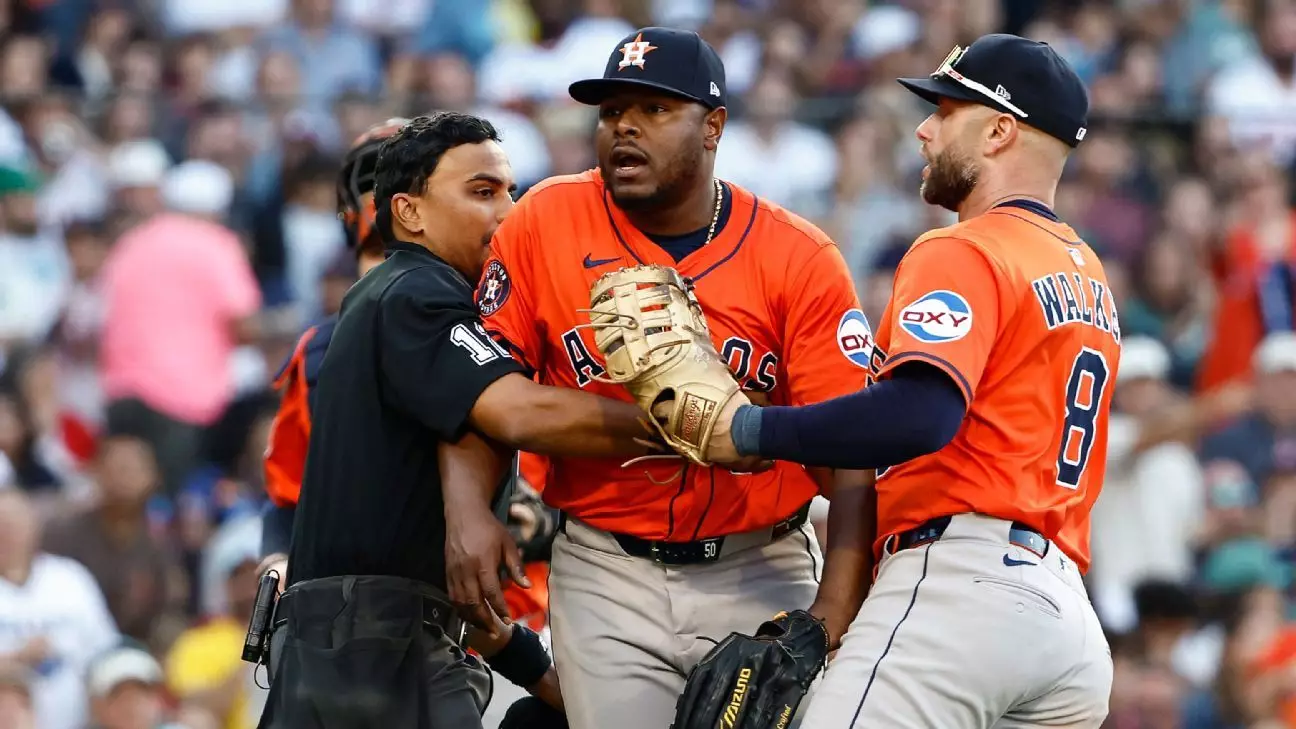Baseball, often regarded as America’s pastime, is inherently built on tradition, honor, and sportsmanship. Yet, recent episodes reveal how the game’s core principles are sometimes overshadowed by accusations and disputes that threaten the integrity of the sport. The recent altercation between the Houston Astros and Boston Red Sox exemplifies this unsettling trend. During a tense game, Astros reliever Hector Neris’s use of a balk to advance a runner, combined with a heated exchange with Red Sox coach Kyle Hudson, exploded into a full-blown bench-clearing incident. Such moments go beyond mere skirmishes—they highlight the deep-rooted mistrust and volatility that can ignite when suspicions of cheating, specifically sign-stealing, persist.
Neris’s subsequent comments revealing uncertainty about the sign-stealing rumors only deepen the darkness surrounding these incidents. His admission that he “maybe” was stealing signs, coupled with his dismissive attitude that nothing serious occurred, underscores a broader issue: the lingering impact of past scandals still reverberates through current games. The tension in this specific game reflected more than just a disagreement between two teams—it represented the shadow of past misconduct that continues to haunt Major League Baseball.
The Historical Context and the Scars of Sign-Stealing
The history of sign-stealing scandals serves as a foundational backdrop for understanding contemporary conflicts. The Houston Astros’ notorious involvement in electronic sign theft during their 2017 World Series-winning season resulted in significant penalties, yet many fans and players remain skeptical about whether the issue has truly been eradicated. Their scandal cast doubt on the fairness of games in that era, insinuating that victories may have been achieved through dishonest means. Former Astros bench coach and current Red Sox manager Alex Cora’s past involvement further complicates the narrative, demonstrating how scandal can persist through organizational ties and personal histories.
The modern reliance on electronic communication, such as PitchCom, seems to have been intended as a safeguard. Still, the potential for trying to decode signs visually or via baserunners remains, lending a sense of constant vulnerability. The fact that players and coaches continue to suspect and accuse each other of illicit signaling cripples trust and fosters an environment where every pitch, every call, becomes embroiled in suspicion and defensive posturing.
Reflection: Trust, Integrity, and the Future of Baseball
This episode begs a fundamental question—can baseball restore and maintain trust amid its past scandals and ongoing suspicions? For a sport that prides itself on tradition and honor, the persistence of sign-stealing accusations signifies a deeper erosion of credibility. Fans, players, and officials must confront their own biases and the complex legacy of dishonesty that has marred the game’s reputation.
While some may dismiss the recent fallout as merely “part of the game,” the underlying issue remains unresolved. The league’s handling of previous scandals shows a pattern of punishment that often feels superficial or insufficient, allowing mistrust to fester. To genuinely uphold integrity, Major League Baseball must foster transparency, impose stringent safeguards, and rebuild trust with its stakeholders. Until then, moments like the Neris-Hudson confrontation will continue to symbolize the ongoing struggle between competitive spirit and the quest for honesty in professional baseball.


Leave a Reply